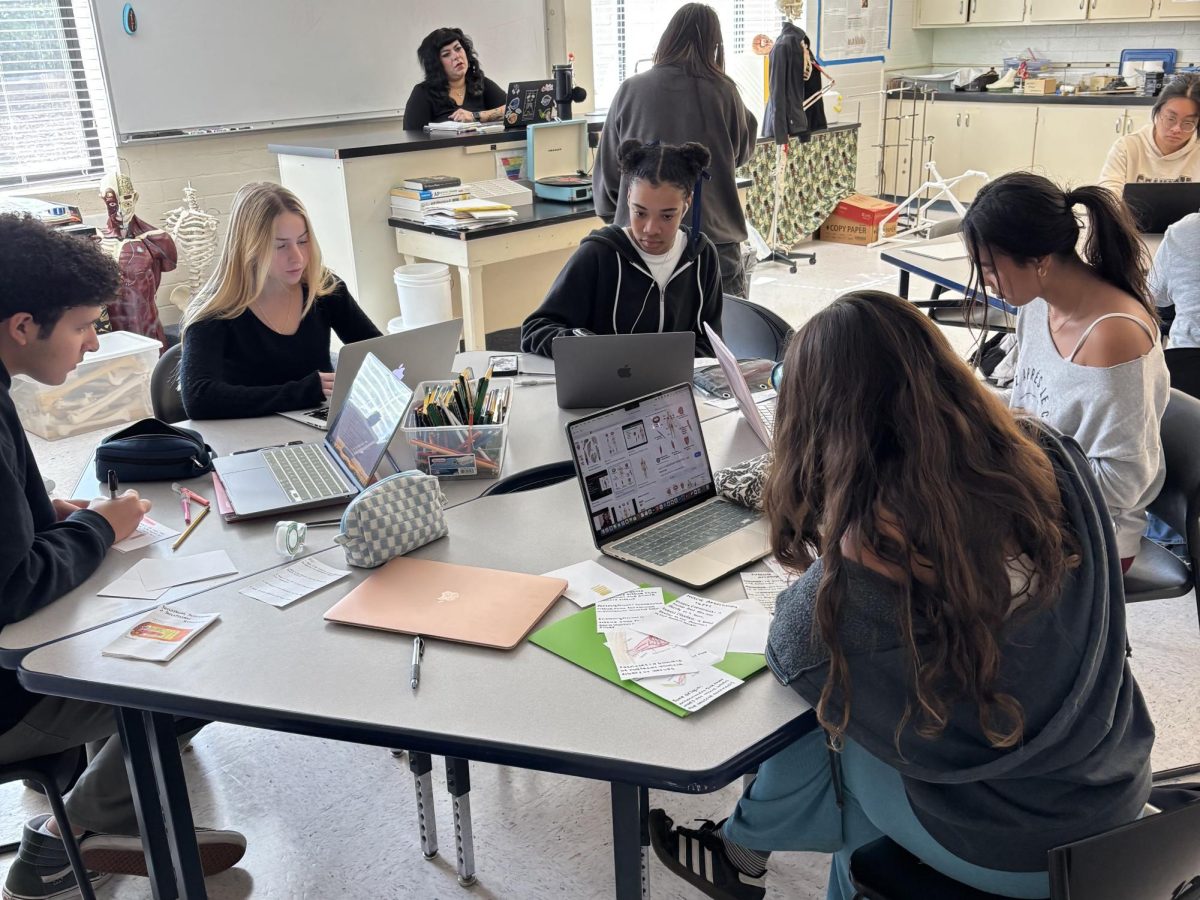This year, Webb adopted a significant curriculum change, removing Advanced Placement classes from the science department and replacing them with Advanced Studies courses.
This shift reflects Webb’s commitment to fostering deeper, hands-on learning that aligns better with their educational philosophy and mission.
AP classes, offered by the College Board, have traditionally held a place in high school education across the United States, providing students with the opportunity to take college level courses that offer college credit. However, the shift to Advanced Studies at Webb marks a new approach focused on critical thinking, independence, and in-depth exploration over standardized testing.
“We stepped back and re-evaluated the AP courses that we kept, and we didn’t necessarily feel like we would offer [these AP courses] if we were creating our own courses,” said Dr. Smith, Head of Schools. “We found that in fact for colleges and universities, it didn’t seem as good as an approach to have some AP courses and some Advanced Studies.”
The AP program offers high school students the opportunity to enroll in college-level courses in subjects like science, language, art, humanities, etc. The AP curriculum is very structured, focusing on content that prepares students for the end-of-year AP test.
Traditionally, AP classes have been considered valuable for high schools as they offer college readiness, a GPA boost, and provide students with a chance to earn college credit, which can reduce the time and cost of college. However, AP courses also face criticism: their emphasis on test preparation can limit the depth of the course, contribute to high stress environments, and confine the course structure to strict guidelines.
Webb’s decision to replace AP with Advanced Studies courses shows their commitment to fostering an environment where students are encouraged to explore topics beyond memorization, performance, and test preparation. This shift allows Webb to support students’ growth in areas aligned with lifelong learning, moving beyond the constraints of the AP model.
“I feel great about the decision [of removing AP classes],” said Lisa Nacionales, Science Department Chair. “The science department has been looking forward to moving away from AP courses and being able to offer more creative and innovative electives. The Alf Method is grounded in experiential learning, and we want our courses to reflect that philosophy.”
The introduction of Advanced Studies in the science department brings many benefits for Webb students. Without the constraints of preparing for AP exams, students have more freedom to engage deeply with the material, exploring subjects in a way that brings a genuine understanding of the material rather than just for the exams. Advanced Studies courses also allow students to pursue areas of personal interest, creating more enthusiasm and curiosity in the classroom.
“We are lucky to have talented teachers that designed the new courses,” said Ms. Nacionales. “Our new courses cover a lot of the same concepts in the AP courses but can go into greater depth on each topic. The new courses are project and research based so students get to do more labs, problem solving, and critical thinking; we are able to offer more field experience and opportunities for students to have longer term research projects.”
Despite these benefits, the shift does have its challenges. Some students may worry about the impact on college applications, as AP courses are widely recognized by college admissions, and the absence of AP courses might raise questions about the academic rigor. This shift also affects students who want to apply to international universities, where AP courses are often a requirement.
“I have to take APs outside of Webb in order to apply for some of my top colleges,” said Lauren Duffy (‘25). “Because Webb doesn’t offer the AP classes that align with my major, I have to take them outside of school.”
Webb’s decision to replace science AP courses this year with Advanced Studies shows a commitment to enrich education in ways that go beyond standardized testing. With this shift, Webb cultivates a learning environment where students think deeply and critically, while also continuing to be interested in the subject they’re learning.
















Bon bon | Nov 16, 2024 at 5:54 AM
If only more schools moved in this direction. I get the desire to earn college credits in High School or look good for college applications, but at the end of the day school is for learning content rather than testing well. Colleges also get a report of courses offered and academic rigor compared to others for each student, so taking those additional AP exams isn’t really necessary. Great article!